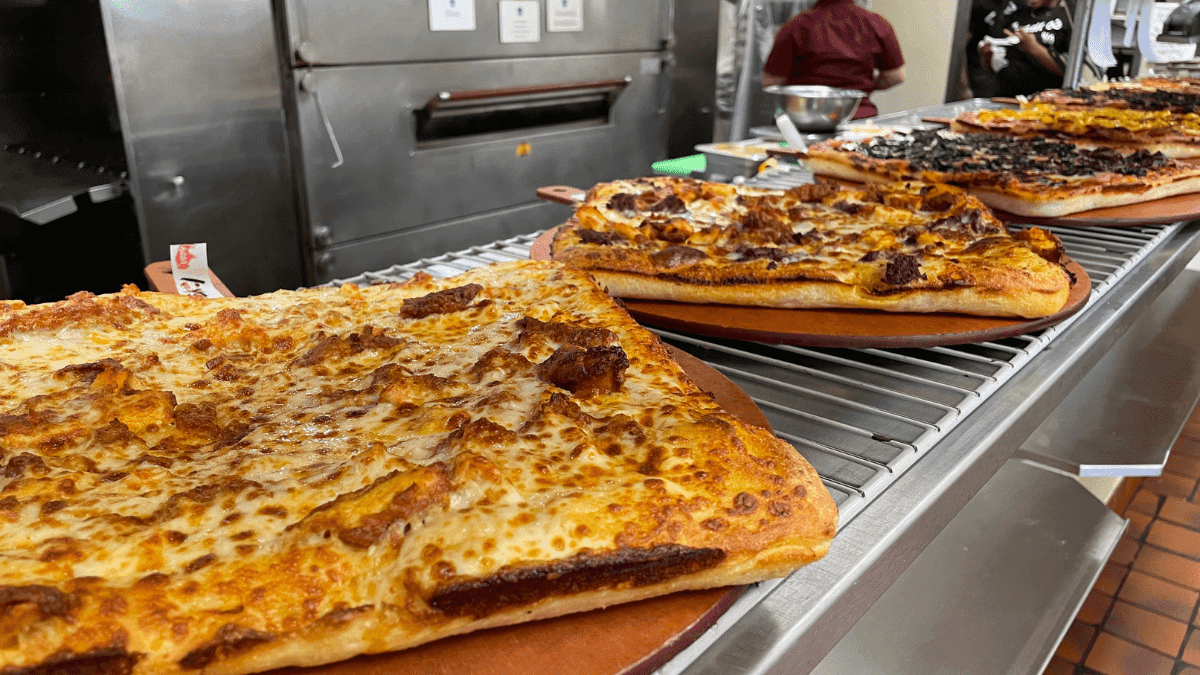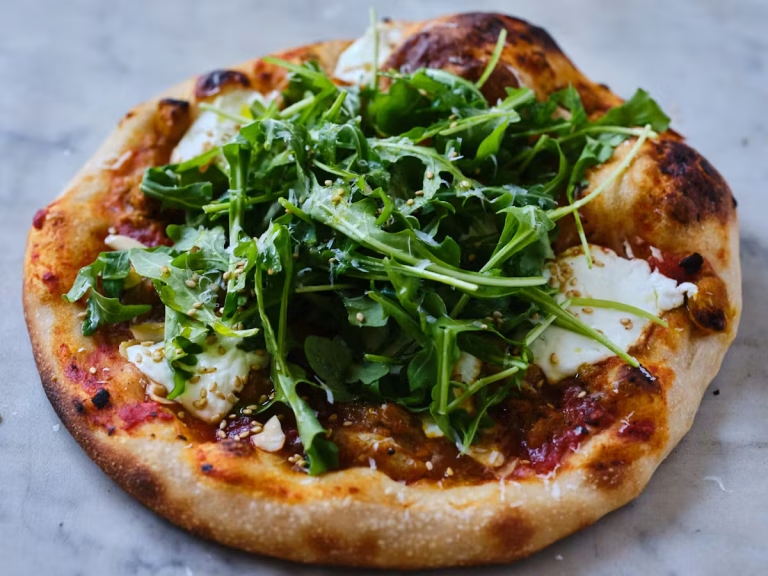Click Here To Watch Presentation ▶️
Pizza. The word itself frequently evokes thoughts of happy get-togethers, weekend indulgence, and comforting cuisine. Despite being a beloved culinary icon for generations, its health benefits are rarely promoted. A well-made pizza can surprisingly improve your diet, even though moderation is key and the nutritional profile varies greatly depending on the ingredients. Beyond the sheer delight it brings to the palate, let’s explore seven delicious and often overlooked benefits of incorporating pizza into your meal rotation.
1. A Source of Essential Nutrients
At its core, a typical pizza is built upon a foundation of dough, sauce, cheese, and various toppings. Each component can contribute a range of essential nutrients. The crust, particularly if made from whole wheat flour, provides complex carbohydrates for energy. Tomato sauce is a powerhouse of vitamins and antioxidants, and cheese offers protein and calcium. When you factor in a variety of vegetable toppings, pizza becomes a surprisingly diverse source of vitamins (A, C, B vitamins), minerals (calcium, iron, potassium), and macronutrients.
2. Rich in Lycopene from Tomatoes
Perhaps the most significant nutritional star in many pizzas is the humble tomato sauce. Tomatoes are an excellent source of lycopene, a potent antioxidant responsible for their red color. Lycopene has been extensively studied for its potential role in reducing the risk of certain chronic diseases, including heart disease and some cancers. What’s even better? The lycopene in cooked tomatoes, like those in pizza sauce, is more bioavailable, meaning your body can absorb and utilize it more effectively than from raw tomatoes.
3. Provides Protein for Satiety and Muscle Health
Cheese, a ubiquitous pizza topping, is a fantastic source of protein and calcium. Protein is vital for muscle repair and growth, immune function, and producing enzymes and hormones. It also plays a crucial role in satiety, helping you feel fuller for longer and potentially reducing overall calorie intake later. Adding lean protein toppings like chicken, ham, or even plant-based options further boosts the protein content, making your pizza a more balanced and satisfying meal.
4. Supplies Calcium for Strong Bones
As mentioned, cheese is a significant contributor of calcium, a mineral absolutely essential for strong bones and teeth. Calcium also plays a role in nerve transmission, muscle function, and blood clotting. Including cheese on your pizza contributes to your daily calcium intake, supporting skeletal health throughout your life.
5. Versatile for Incorporating Vegetables
One of pizza’s greatest strengths is its incredible versatility, particularly when it comes to vegetables. Unlike some dishes where vegetables feel like an afterthought, on a pizza, they can be the star. Loading up your pizza with a colorful array of vegetables like bell peppers, spinach, mushrooms, onions, olives, and artichoke hearts dramatically increases its fiber, vitamin, and antioxidant content. This makes pizza an excellent vehicle for boosting your daily vegetable intake in a delicious and appealing way, especially for those who might be hesitant to eat them otherwise.
6. Boosts Mood and Social Connection
Let’s not underestimate the psychological and social benefits of food. Pizza, for many, is synonymous with comfort, celebration, and sharing. The act of enjoying a delicious meal with family and friends can significantly boost mood, reduce feelings of isolation, and foster a sense of connection. The sheer pleasure derived from a favorite slice can release endorphins and reduce stress. Food’s role in social bonding and emotional well-being is a valid, though often unquantified, benefit.
7. Offers Dietary Flexibility (Gluten-Free, Vegan, etc.)
With evolving dietary needs and preferences, pizza has adapted remarkably. The availability of gluten-free crusts, dairy-free cheeses, and a vast array of plant-based toppings means that almost anyone can enjoy pizza without compromising their dietary restrictions. This flexibility allows individuals with allergies or specific eating patterns to still participate in the joy of pizza, ensuring they can enjoy a delicious and satisfying meal tailored to their needs, complete with all the potential nutritional benefits mentioned.
In conclusion, while it’s certainly possible to create an indulgent pizza, a thoughtful approach to ingredients can transform it into a surprisingly beneficial and wonderfully satisfying meal. So, go ahead, enjoy that slice, perhaps with a few extra vegetables, and savor the many benefits it brings!



